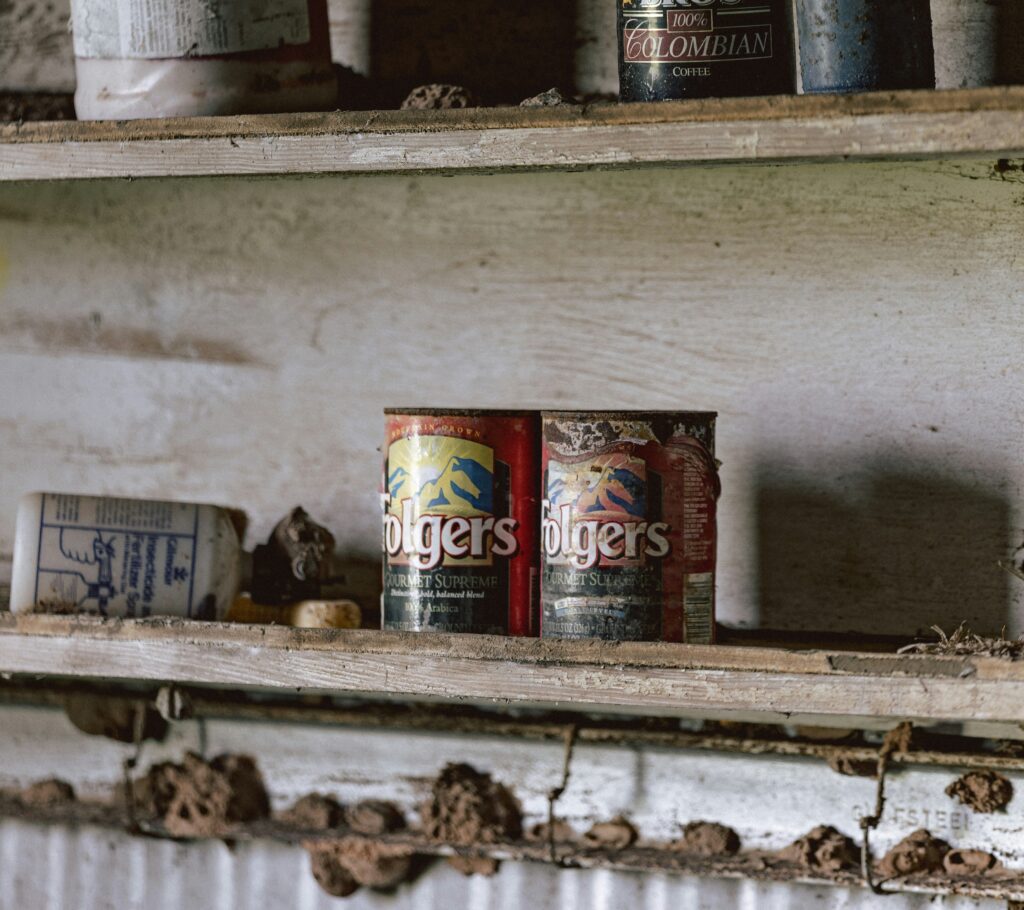Physical Address
304 North Cardinal St.
Dorchester Center, MA 02124
Physical Address
304 North Cardinal St.
Dorchester Center, MA 02124

Do Coffee Beans Actually Go Bad? (Shelf Life Explained)
Coffee lovers are passionate about their brew, but one question doesn’t get asked enough: do coffee beans go bad? The answer is yes—but not in the way you might think. They won’t mold overnight or smell rotten, but stale beans can be just as disappointing.
If you’re investing time (and money) into making good coffee at home, you deserve to know whether your beans are still worth using. Let’s dig into what “going bad” means for coffee, how long beans actually stay fresh, and the best ways to store them to protect flavor.
How Coffee Beans Degrade Over Time
Unlike perishable foods, coffee beans don’t go “bad” in a traditional sense. But they do lose quality—and that quality decline starts faster than most people expect.
Here’s what happens over time:
• Oxidation dulls the aromatic oils
• Moisture causes beans to become flat or even rancid
• Light and heat speed up chemical breakdown
• Air exposure lets volatile flavors escape
This process strips away complexity, aroma, and body. The result? A cup that tastes flat, bitter, or just plain “meh.”
Shelf Life of Coffee Beans
Let’s break it down by type of bean and how it’s stored:
Whole Beans
• Best flavor: Within 2–4 weeks of roast date
• Still usable: Up to 3 months
• After 3–4 months: Noticeably stale, even if stored well
Ground Coffee
• Best flavor: Use within 1 week of opening
• Still usable: 2–3 weeks tops
• After 1 month: Often bland and lifeless
Vacuum-Sealed or Nitrogen-Flushed Bags
• Best flavor: Up to 4 weeks after opening
• Shelf life (unopened): Often 6–9 months, but only if stored cool and dark
Why Roast Dates Matter (Not “Best By” Labels)
A big red flag on coffee packaging? When it only shows a “Best By” date. That’s usually a sign it was roasted months ago and sat in storage or on shelves.
Instead, always look for a roast date. If it’s within the last 30 days, it’s likely still fresh. Anything over 90 days? Flavor is already fading.
Roasters that care about quality always include the roast date. If you can’t find one, move on.
Signs Your Coffee Beans Are Stale
You don’t need lab equipment to tell when beans have passed their prime. Just use your senses:
• Aroma is weak or cardboard-like
• Beans look dry, overly oily, or cracked
• Grind smells flat or dusty
• Coffee doesn’t “bloom” when brewed
• Flavor is muted, bitter, or hollow
Fresh coffee has a vibrant, strong aroma. If you’re not smelling much—or what you smell isn’t good—that’s your first clue.
How to Store Coffee Beans for Maximum Freshness
Proper storage can extend freshness by weeks. Here’s how to keep your beans at their best:
• Store in an opaque, airtight container
• Keep in a cool, dark cupboard—not on the counter or near your oven
• Never store in the fridge (moisture = bad)
• Only freeze beans if you buy in bulk—and store them airtight and unopened
• Grind just before brewing, if possible
Even with great storage, coffee starts to lose vibrancy after the 4-week mark. Buying smaller amounts more often is your best bet.
Why Pre-Ground Coffee Goes Stale Fast
Grinding increases surface area, which means more contact with oxygen. That’s why pre-ground coffee can go from decent to dull in just a few days.
If you’re serious about flavor and freshness, whole beans are always the better choice. Get a basic burr grinder—they’re worth it.
Dark Roast vs. Light Roast Shelf Life
Believe it or not, roast level can affect how long beans stay fresh:
• Light roasts often retain complex, fruity flavors—but degrade faster
• Dark roasts may taste more consistent over time, but risk becoming oily or flat if over-aged
• Either way, freshness is still key—even the best roast can’t fight staleness
Should You Freeze Coffee Beans?
Freezing is a controversial topic in the coffee world, but done right, it can help extend life—especially for bulk buyers.
To freeze beans:
• Use vacuum-sealed or double-bagged containers
• Portion them out ahead of time (don’t keep reopening one big bag)
• Thaw completely before opening to avoid condensation
⚠️ Do not freeze beans you plan to use within the next 2 weeks—room-temp storage is better for short term freshness.
What About Instant Coffee?
Instant coffee is typically made from lower-quality Robusta beans and has already gone through processing. The upside? It doesn’t “go stale” in the same way.
But even instant has a limit—flavor and aroma fade after the expiration date, and it can absorb moisture if stored poorly.
What Happens If You Use Old Beans?
Using old coffee won’t make you sick, but it can make your cup taste lifeless or unpleasant. You might notice:
• Lack of bloom during brewing
• Flavors like cardboard, ash, or bitterness
• Low aroma or weird aftertaste
Brewing great coffee with stale beans is like trying to cook a gourmet meal with wilted lettuce. No matter how good your gear is—it just won’t shine.
Final Verdict: Yes, Coffee Beans Go Bad—But You Can Prevent It
They don’t spoil like dairy, but coffee beans do lose their magic. Once the flavor compounds are gone, they’re gone.
So if you want bold, complex, café-level coffee at home, remember:
• Buy fresh, whole beans
• Use them within a month of roast
• Store them like they’re precious (because they are)
Your morning cup is only as good as the beans you start with. Don’t waste your best brew method on beans that lost their spark months ago.